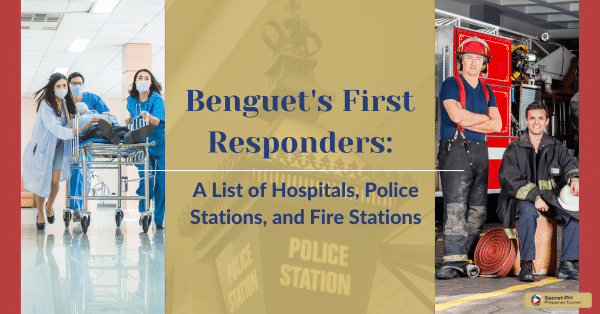The emergency services industry in the Philippines is a unique and challenging work environment. It is lauded for its tireless devotion to protecting lives and preserving public safety.
Working in Philippine emergency services presents challenges such as high-pressure situations and bureaucratic obstacles, but also offers rewards such as making a difference in the lives of others, professional growth, and a sense of fulfillment. Balancing personal and professional life, building strong relationships, and recognizing the rewards of the job are important for success and job satisfaction. Emergency responders play a crucial role in providing effective services to the community.
They are respected for the long hours they spend working, often in hazardous conditions, so that others may benefit from their hard work and dedication. The challenge of serving others professionally while responding quickly and reliably to emergencies of all sizes makes being an emergency service worker a truly rewarding experience.
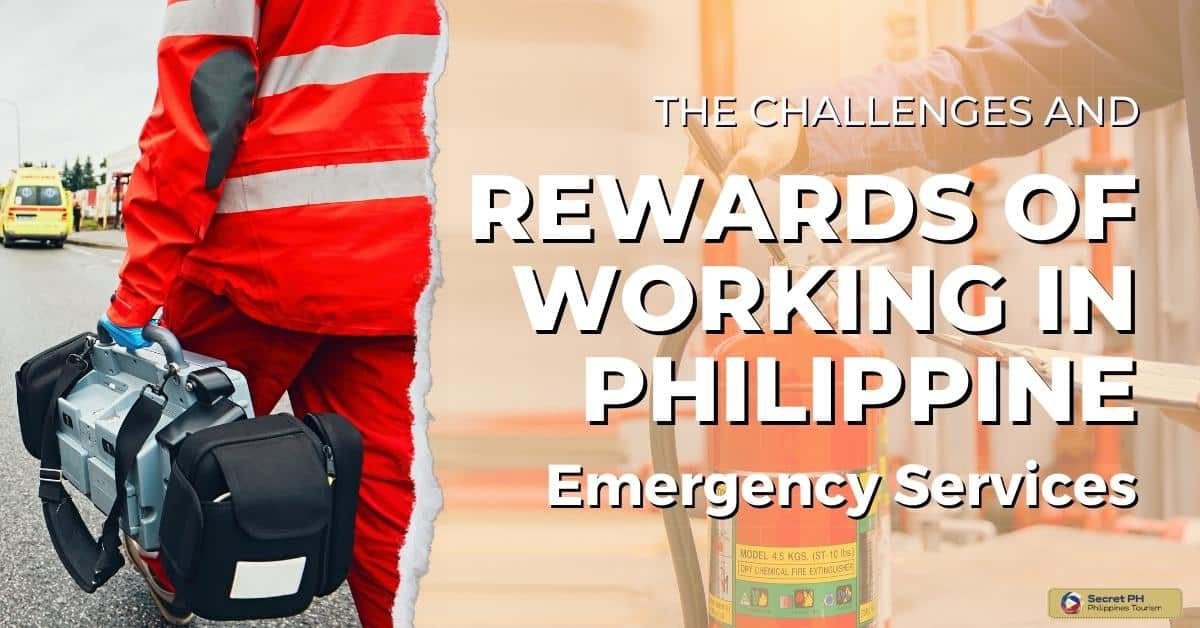
Understanding the Nature of Philippine Emergency Services
Understanding the nature of Philippine emergency services involves recognizing the unique challenges and demands of the job. This includes responding to a wide range of emergencies, such as natural disasters, medical emergencies, and security threats, in a timely and effective manner.
It also involves being familiar with local laws and regulations, as well as the resources and equipment available to emergency responders. Furthermore, emergency responders must have a strong understanding of the cultural and social dynamics of the communities they serve, as this can impact their response to emergencies.
By understanding the nature of Philippine emergency services, responders can be better prepared to provide the highest level of care to those in need.
| Key Factors | Description |
|---|---|
| Range of Emergencies | Responses to a wide range of emergencies, including natural disasters, medical emergencies, and security threats. |
| Knowledge of Laws and Regulations | Familiarity with local laws and regulations. |
| Availability of Resources and Equipment | Understanding of available resources and equipment for emergency responders. |
| Cultural and Social Dynamics | Awareness of cultural and social dynamics in the communities served. |
| Timeliness and Effectiveness | Ability to respond to emergencies in a timely and effective manner. |
| Community-Oriented | Understanding the importance of providing services to the community. |
| Cultural Sensitivity | Understanding and respect for cultural diversity. |
In addition to the key factors listed in the table, the Philippine emergency services also require a strong commitment to ongoing training and professional development.
Emergency responders must be prepared to handle a wide range of scenarios and stay current with the latest technologies, procedures, and best practices. They must also be able to work well under pressure, remain calm in high-stress situations, and make quick, informed decisions that can potentially save lives.
Another important aspect is recognizing the impact that the job can have on the mental and emotional well-being of responders. This can include exposure to traumatic events, long hours, and the stress of being constantly on call.
To effectively address these challenges, emergency responders must be able to take care of their own physical and emotional health, seek support from colleagues and loved ones, and participate in ongoing self-care and stress management programs.
In summary, multifaceted process that requires a combination of technical skills, interpersonal skills, and personal resilience. By being aware of the challenges and rewards of the job, emergency responders can better serve their communities and make a positive impact on the lives of those in need.

Coping with High-Pressure Situations in the Philippines
Coping with high-pressure situations is a critical aspect of working in Philippine emergency services. Responders must be able to remain calm, focused, and effective in the face of challenging and potentially life-threatening situations. This requires a combination of training, experience, and personal resilience.
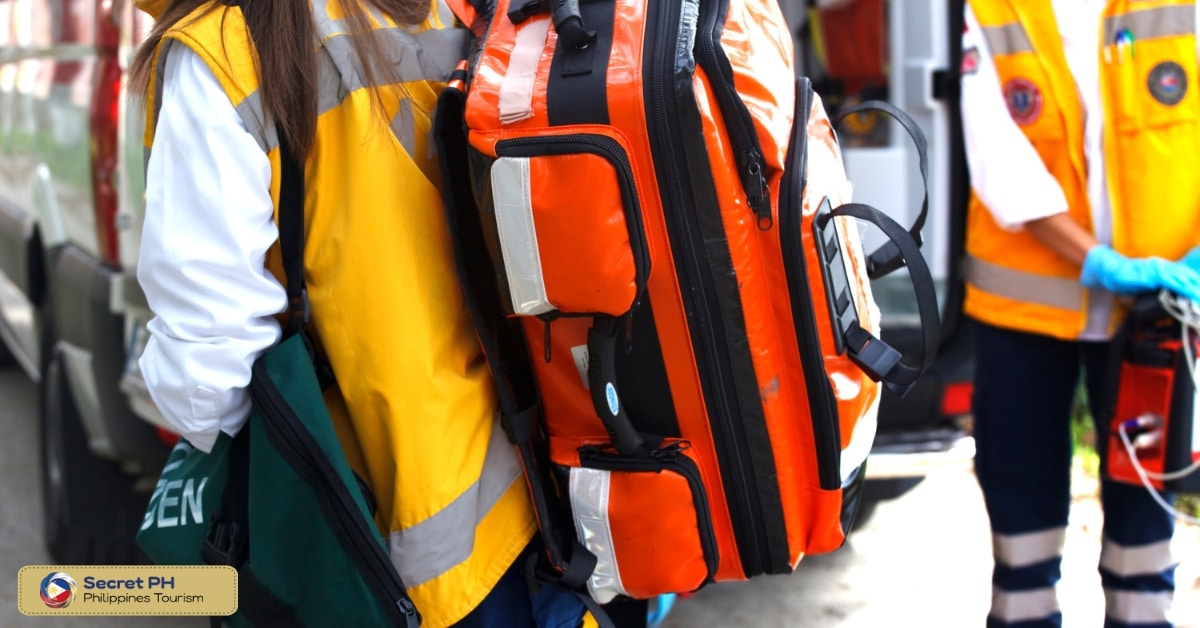
Training and Professional Development
One effective way of coping with high-pressure situations is to be well-prepared through ongoing training and professional development. This can help responders feel confident in their abilities and better equipped to handle the demands of the job.
It is also important for responders to have a strong support network, including colleagues and loved ones who can provide emotional and practical support during high-stress moments.
Develop and Maintain a Positive Mindset
Another way to cope with high-pressure situations is to develop and maintain a positive mindset. This can involve practicing mindfulness and stress-management techniques, such as deep breathing and visualization, to help calm the mind and stay focused.
Additionally, it is important for responders to prioritize self-care and seek support from mental health professionals when needed.
Debriefing
Finally, it is important for emergency responders to debrief after high-stress situations, both as individuals and as a team. This can help process the emotions and experiences of the event, and identify ways to improve response and support for future situations.
In conclusion, coping with high-pressure situations is a key aspect of working in Philippine emergency services.
By being well-prepared, having a strong support network, maintaining a positive mindset, and debriefing regularly, responders can better manage the demands of the job and provide the highest level of care to those in need.

Building Strong Relationships with Colleagues
Building strong relationships with colleagues is essential for success in Philippine emergency services. A supportive and collaborative work environment can help responders better handle the demands of the job and provide the best possible care to those in need.
Here are some ways to build strong relationships with colleagues:
- Collaborate on projects and tasks
- Practice open and effective communication
- Offer support and encouragement to one another
- Respect differences and practice inclusiveness
- Share experiences and lessons learned from emergency responses
- Participate in team-building activities and events
- Foster a positive and supportive work environment
Additionally, building strong relationships with colleagues can help improve overall job satisfaction and increase motivation. When responders feel supported and valued by their colleagues, they are more likely to be engaged and committed to their work, which can ultimately lead to better outcomes for the communities they serve.

Providing Effective Services to the Community
Providing effective services to the community is the primary goal of Philippine emergency services. This requires a combination of technical skills, communication skills, and a commitment to serving others. Here are some key factors for providing effective services to the community:
- Knowledge of emergency response procedures and protocols
- Ability to quickly assess and respond to emergency situations
- Effective communication with all stakeholders, including the public, other emergency responders, and healthcare providers
- Collaboration with other agencies and organizations to provide coordinated and comprehensive care
- Use of technology and resources to improve response times and outcomes
- Implementation of best practices and continuous quality improvement efforts
- Awareness of cultural differences and sensitivity to the needs and beliefs of the community
In addition to these technical and operational factors, providing effective services to the community also requires a commitment to ongoing training and professional development and a dedication to serving others. By prioritizing the needs and well-being of the community, emergency responders can help ensure that those in need receive the highest quality of care and support.

Navigating Bureaucratic Challenges
Navigating bureaucratic challenges is a common issue faced by emergency responders in the Philippines. Bureaucratic procedures and regulations can create barriers to providing effective services to the community, leading to delays and difficulties in delivering care.
This can include issues with obtaining necessary resources, navigating inter-agency coordination, and complying with regulations and policies.
To overcome bureaucratic challenges, it is important for emergency responders to have a good understanding of the regulatory environment, as well as the policies and procedures that govern their work.
This can help them navigate the bureaucratic landscape more effectively and work within established guidelines. Additionally, it is important to develop strong relationships with key stakeholders, including government agencies, other emergency responders, and community organizations.
These relationships can help build trust and facilitate collaboration, making it easier to navigate bureaucratic challenges and find solutions to common problems.
In conclusion, navigating bureaucratic challenges is an ongoing challenge in Philippine emergency services.
By staying informed, building strong relationships, and working collaboratively, emergency responders can help overcome these barriers and provide the most effective services to the community.
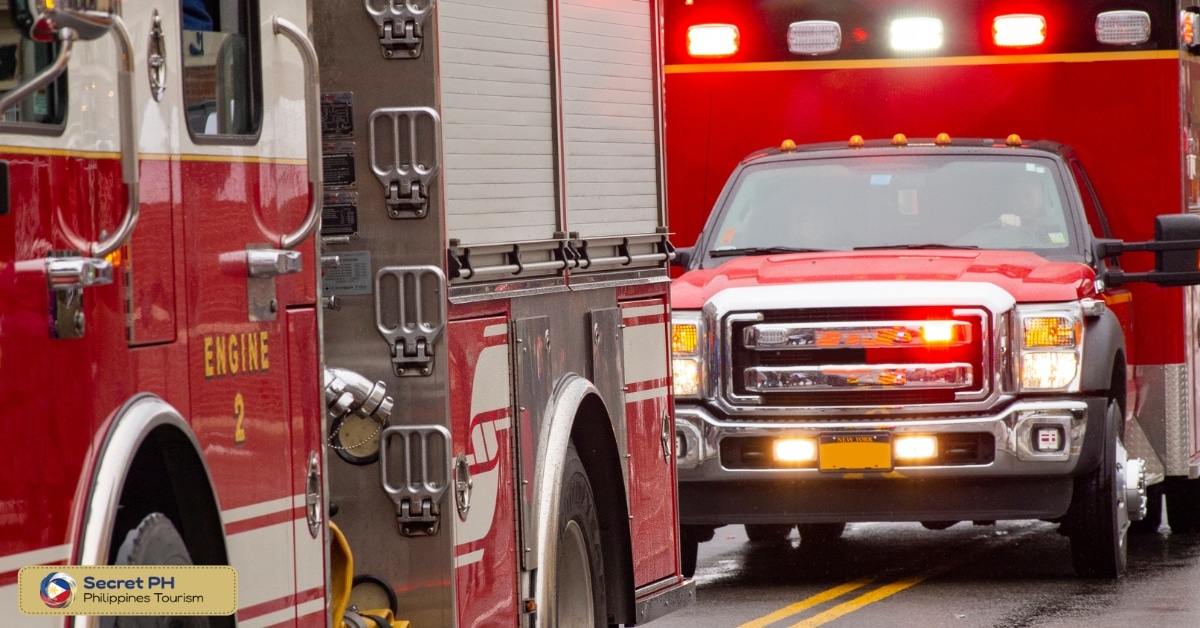
Recognizing and Acknowledging the Rewards of the Job
Recognizing and acknowledging the rewards of working in Philippine emergency services is important for maintaining job satisfaction and motivation. While the job can be physically and emotionally demanding, it also provides many opportunities for personal and professional growth, as well as the satisfaction of making a positive impact on the lives of others. Some of the rewards of working in emergency services include:
- Making a difference in the lives of others and contributing to the well-being of the community
- Developing strong relationships with colleagues and other emergency responders
- Gaining a sense of personal fulfillment and purpose from serving others
- Opportunities for professional growth and advancement
- Learning new skills and techniques to improve emergency response and patient care
- Receiving recognition and appreciation from the community and other stakeholders
- Being part of a team that works together to make a positive impact
It is important for emergency responders to take time to acknowledge and appreciate the rewards of the job. It includes in the face of the challenges and difficulties that come with working in emergency services. This can help build resilience and motivation, and help ensure that responders remain committed to their work and the communities they serve.
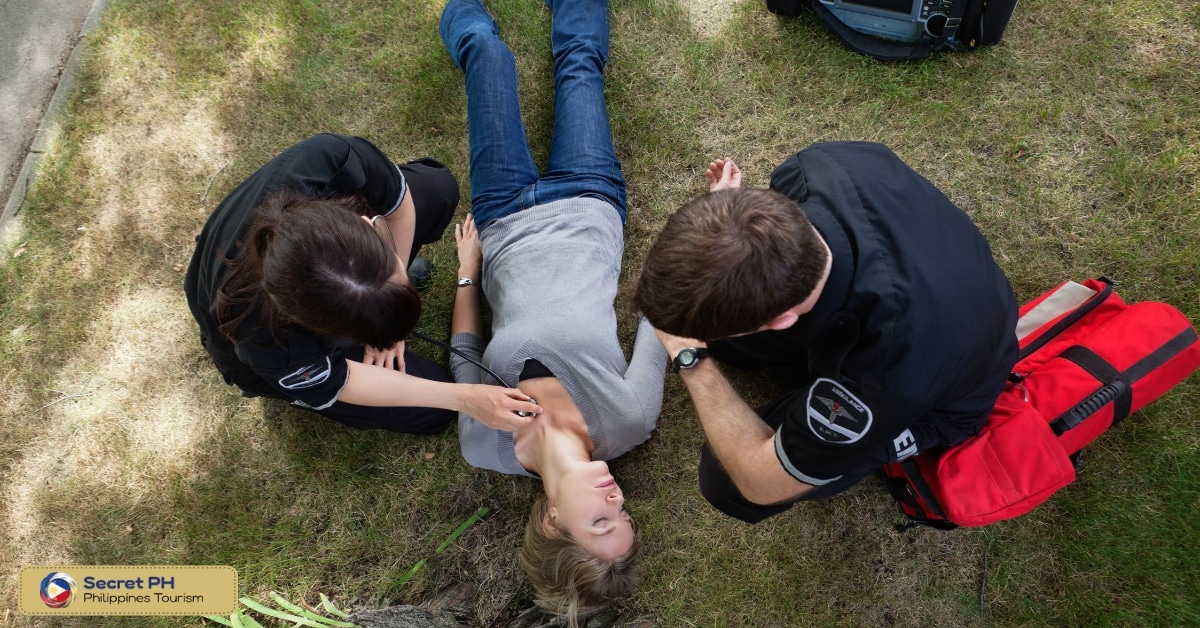
In conclusion
Working in Philippine emergency services can be a challenging and demanding job. It is also one that offers many rewards and opportunities for personal and professional growth.
Emergency responders can provide the best possible services to the community, while also maintaining their own well-being and job satisfaction.
The challenges and rewards of working in Philippine emergency services are interrelated. It requires a comprehensive approach to ensure the well-being of both the responders and the communities they serve.



